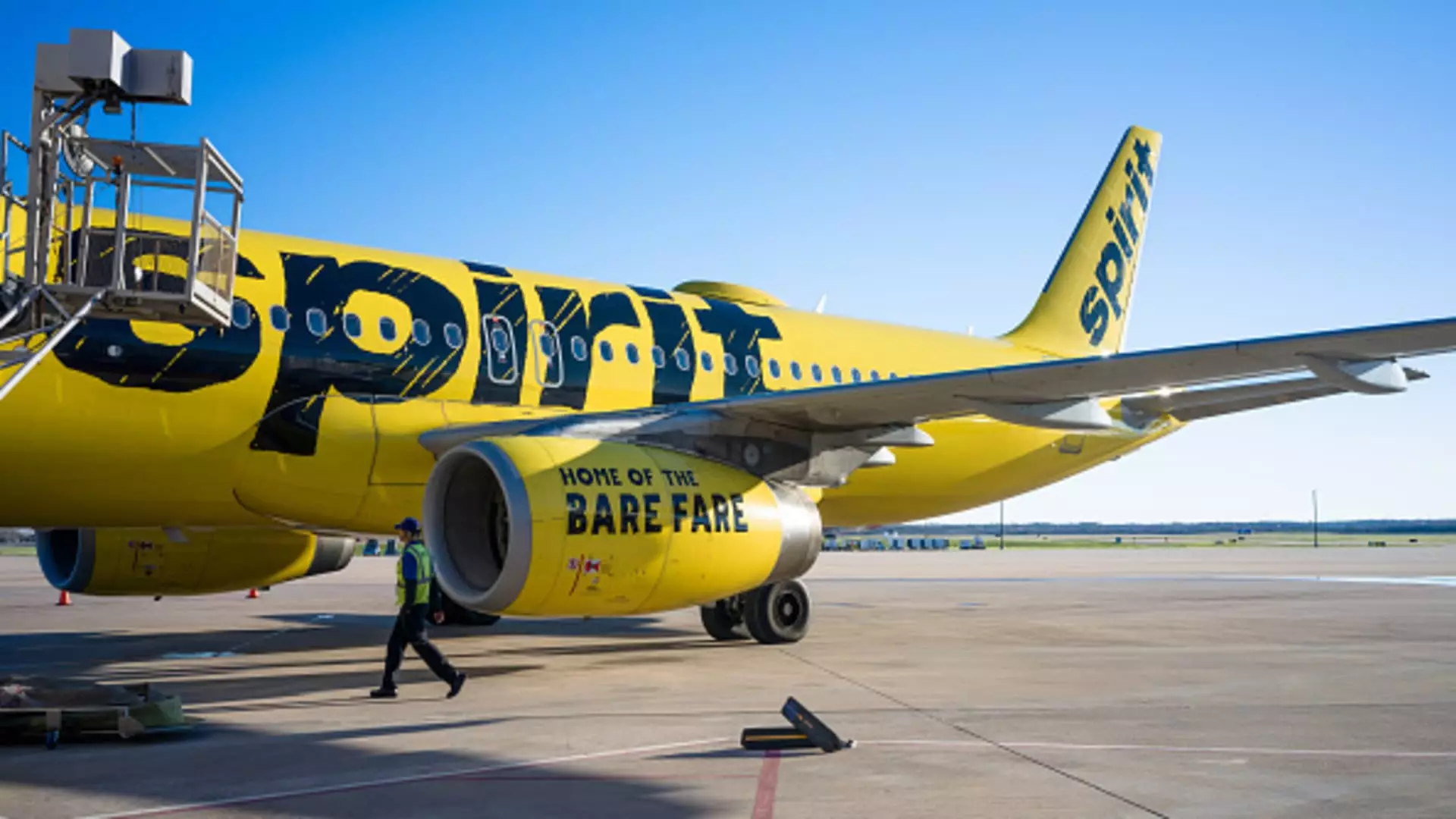Spirit Airlines recently announced that it would be posting a wider loss for the last quarter than originally expected. The budget airline cited revenue that fell short of its projections as the main reason for the financial setback. The adjusted loss for the three-month period ending June 30 is now estimated to be between $160 million and $173 million, significantly higher than the initial forecast of no more than $145 million.
In addition to the higher-than-expected loss, Spirit Airlines also revised its sales forecast downwards. The airline now expects sales of $1.28 billion for the quarter, a decrease from the previously predicted $1.32 billion. One of the main contributing factors to the decline in sales is the lower-than-anticipated non-ticket revenue per passenger. This revenue stream, which includes the various fees associated with Spirit’s low-cost fares, came in “several dollars lower than anticipated.”
Spirit Airlines is currently facing a number of challenges that are impacting its financial performance. The oversupplied U.S. domestic market, coupled with an engine recall from supplier Pratt & Whitney that has grounded dozens of aircraft, has created significant operational hurdles for the airline. Furthermore, the fallout from a federal judge’s ruling to block a planned acquisition by JetBlue Airways earlier this year has added to Spirit’s list of obstacles.
Despite the setbacks, Spirit Airlines remains optimistic about its transformation strategy. The airline has recently revamped its ticket-selling approach by offering bundled packages that include amenities such as seat assignments and carry-on bags, which were previously sold separately. By aligning its business practices more closely with those of its larger competitors, Spirit aims to drive improvement in total revenue per passenger segment over time.
Spirit Airlines is navigating a challenging period marked by financial losses, declining sales forecasts, and operational setbacks. However, the airline is taking proactive steps to address these issues through its transformation strategy and efforts to enhance revenue generation. As the industry continues to evolve, Spirit will need to adapt strategically to remain competitive in the highly competitive airline market.

